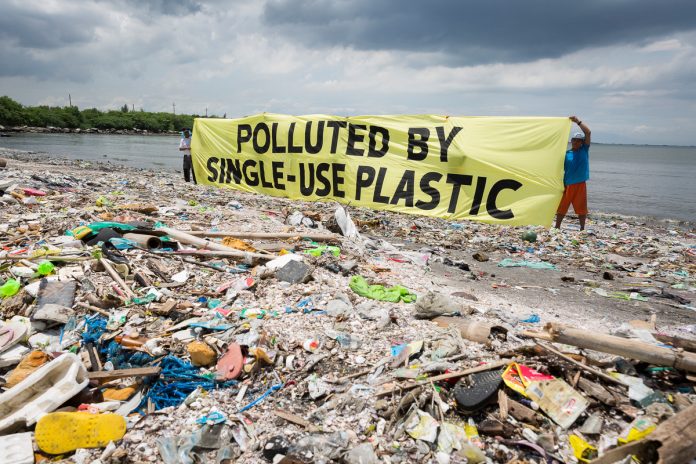The Philippine Reuse Consortium (PRC), the national chapter of the Asia Reuse Consortium, was officially launched in January 2025 during International Zero Waste Month.
The initiative brought together civil society organizations (CSOs), government agencies, and businesses to promote solutions aimed at reducing single-use plastics (SUPs).
The launch followed a three-day workshop and consultations organized by Greenpeace Philippines and the Mother Earth Foundation, with support from Plasticdiet Indonesia, GAIA Asia Pacific, and the Break Free From Plastic movement.
Participants showcased local reuse practices, including zero-waste sari-sari stores, carinderias, and refill shops such as Back-to-Basics Ecostore and Sabon Express, demonstrating how these models could be adapted to the Philippine context.
The Consortium set goals to develop a national reuse roadmap, aiming to expand these systems. Research indicated that reuse models could cut plastic pollution by 30% and reduce greenhouse gas emissions from packaging production by 80% by 2040.
Collaboration among policymakers, businesses, and communities was emphasized to institutionalize reuse systems.
“A reuse-based economy in which every Filipino has access to reuse systems and affordable alternatives to single-use plastics is possible,” said Marian Ledesma, Zero Waste Campaigner at Greenpeace Philippines.
She urged businesses to transition to reuse models and called on policymakers to create laws with clear targets.
Rap Villavicencio, Deputy Director for Programs at the Mother Earth Foundation, stressed the role of small businesses.
“The reintroduction and mainstreaming of Zero Waste businesses, such as sari-sari stores and carinderias, have shown potential in driving a sociocultural shift toward reuse. However, achieving systemic change requires strong support through enabling policies and technologies,” he said.
Faye Ferrer, Network Organizer for Break Free From Plastic, highlighted the viability of local initiatives. “Local initiatives and small businesses in the Philippines… have shown that reuse and refill practices are still very much alive in our communities. With the right and adequate support, it is possible to scale these solutions not only to end plastic pollution but also to address climate concerns,” she said.
The Consortium’s plans included integrating waste workers into reuse systems and providing training and fair compensation. Froilan Grate, Regional Coordinator of GAIA Asia Pacific, noted, “Frontline communities and waste workers are crucial to building effective reuse systems. The Philippine Reuse Consortium’s 10-point action plan integrates training and fair compensation for these groups, while also drawing from local reuse models that are already working.”
“Reuse is a great help for us waste workers, as it reduces useless trash like single-use plastics and sachets. By joining the PRC, we will gain knowledge and be able to contribute more. We will serve as models in our communities through information and education campaigns,” said Aloja Santos, President of the Philippine National Waste Workers Association.
The PRC unveiled a five-year plan focused on advocating progressive laws, supporting waste workers, scaling up reuse systems, fostering cross-sectoral partnerships, and driving innovation through research and investment. Government support was identified as crucial to the initiative’s success.
“Especially if you are a sari-sari store or carinderia owner, reuse is possible,” said Khate Nolasco, a barangay councilor from Potrero. “Government officials can make this happen if we support the transition of these businesses while creating and implementing policies that would ban single-use plastics,” she added.









